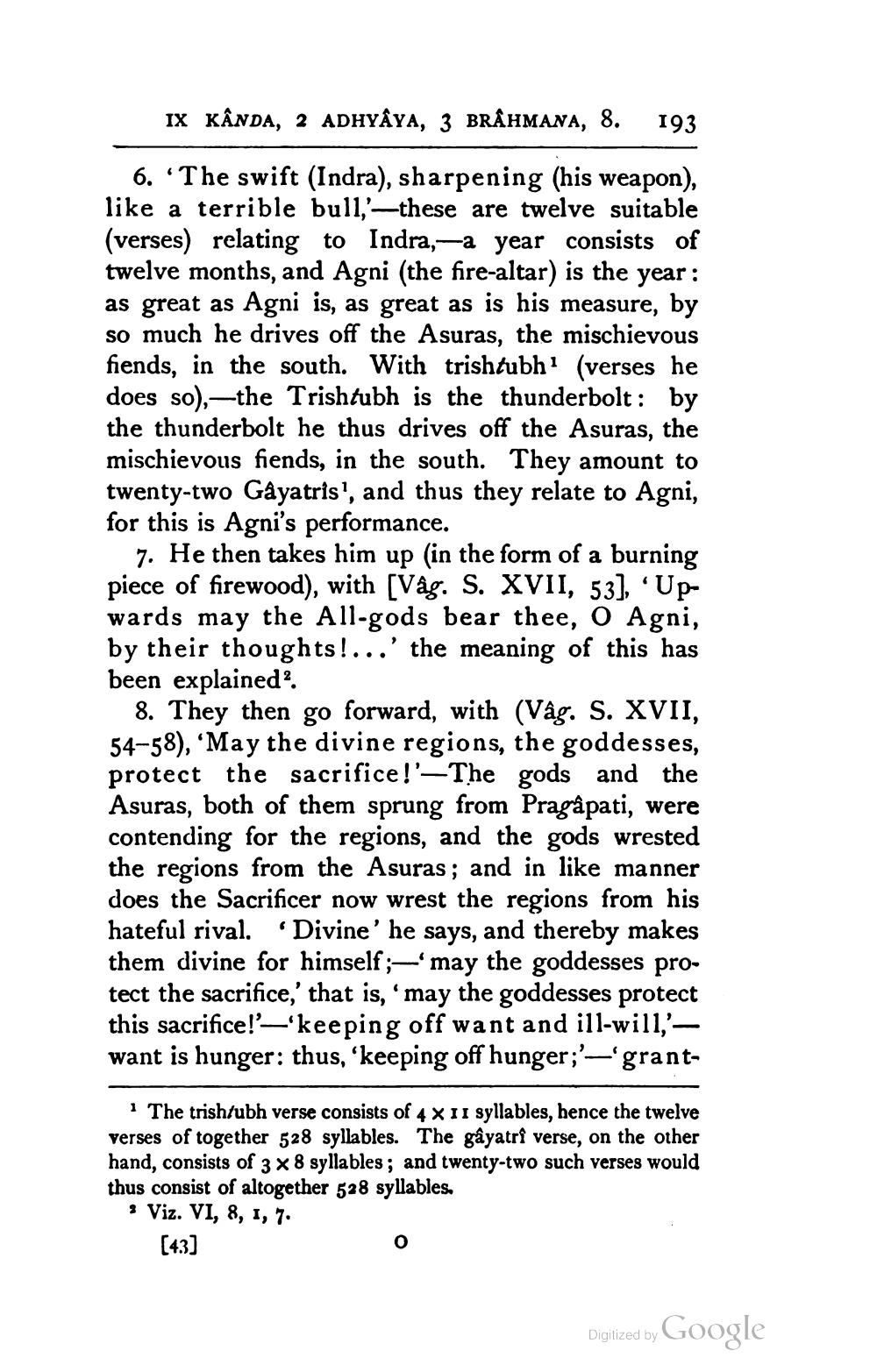________________
IX KÂNDA, 2 ADHYÂYA, 3 BRÂHMANA, 8.
193
6. “The swift (Indra), sharpening (his weapon), like a terrible bull,'—these are twelve suitable (verses) relating to Indra,—a year consists of twelve months, and Agni (the fire-altar) is the year : as great as Agni is, as great as is his measure, by so much he drives off the Asuras, the mischievous fiends, in the south. With trishtubh? (verses he does so),—the Trishtubh is the thunderbolt: by the thunderbolt he thus drives off the Asuras, the mischievous fiends, in the south. They amount to twenty-two Gayatris', and thus they relate to Agni, for this is Agni's performance.
7. He then takes him up in the form of a burning piece of firewood), with [Våg. S. XVII, 53], ‘Upwards may the All-gods bear thee, o Agni, by their thoughts!...' the meaning of this has been explained?
8. They then go forward, with (Vág. S. XVII, 54-58), “May the divine regions, the goddesses, protect the sacrifice!'—The gods and the Asuras, both of them sprung from Pragâpati, were contending for the regions, and the gods wrested the regions from the Asuras; and in like manner does the Sacrificer now wrest the regions from his hateful rival. Divine' he says, and thereby makes them divine for himself;—'may the goddesses protect the sacrifice,' that is, 'may the goddesses protect this sacrifice!'—'keeping off want and ill-will,'— want is hunger: thus, 'keeping off hunger;'-'grant
The trishtubh verse consists of 4 X 11 syllables, hence the twelve verses of together 528 syllables. The gâyatri verse, on the other hand, consists of 3 x 8 syllables; and twenty-two such verses would thus consist of altogether 528 syllables. 9 Viz. VI, 8, 1, 7.
[43]
Digitized by Google




